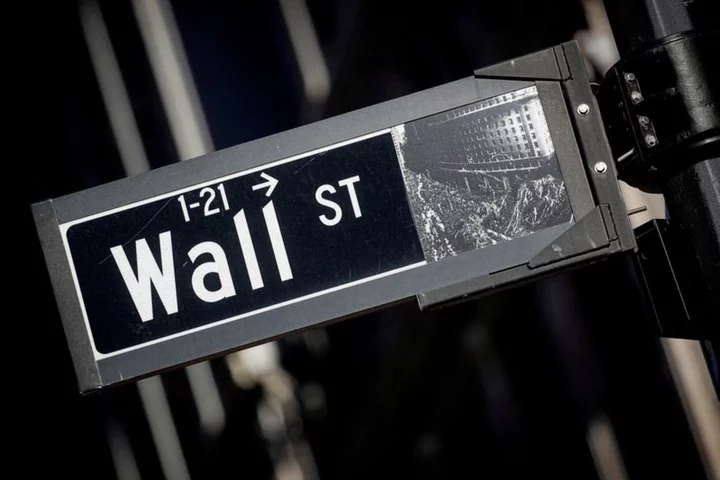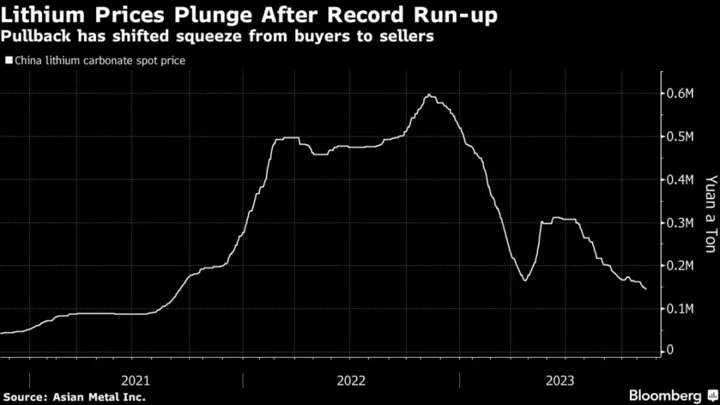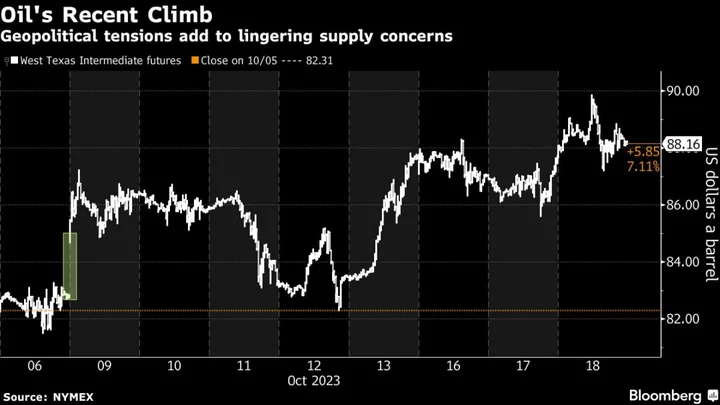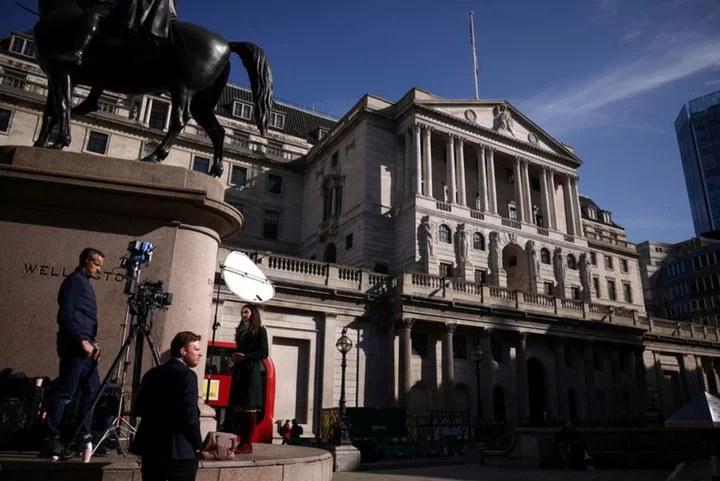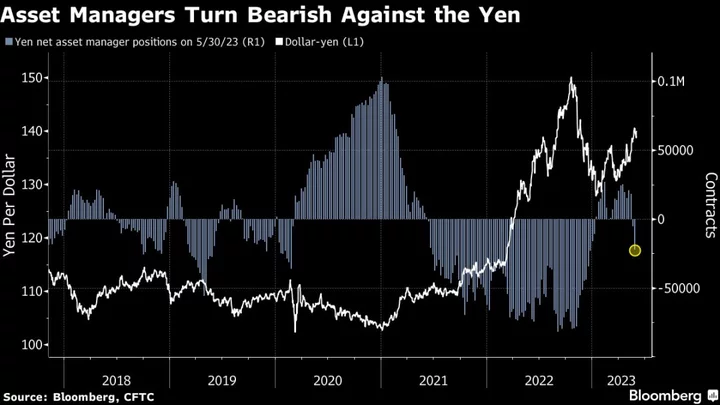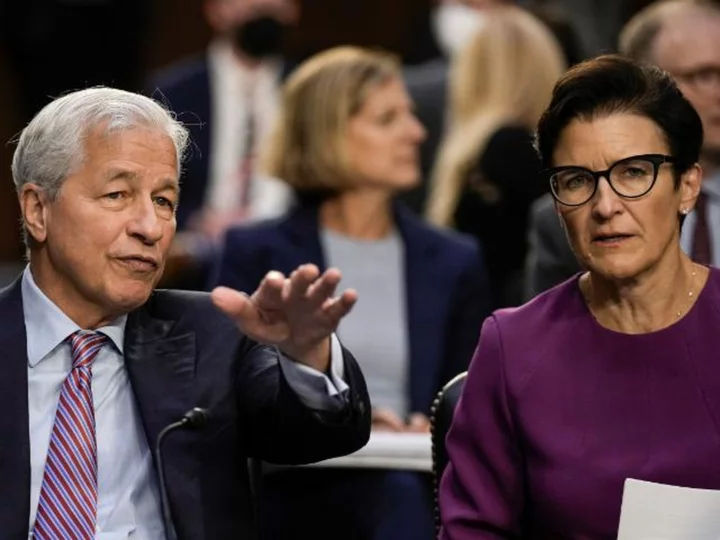A look at the day ahead in U.S. and global markets from Mike Dolan
As Wall Street mourns the passing of 99-year-old investment legend Charlie Munger, Federal Reserve top brass gave one of the clearest signals yet that the central bank's 20-month tightening campaign is over at last.
The death of Berkshire Hathaway's Munger leaves 93-year Warren Buffett without his long-term lieutenant and the conglomerate's lone star name, focusing minds on long-planned succession and the lesser-known managers due to take over.
But back in the markets, the Fed's policy pivot was all the rage as Treasury yields and dollar plunged anew.
Fed Governor Christopher Waller, a hawkish and influential voice at the central bank and seen to be close in thinking to Fed boss Jerome Powell, clearly indicated the Fed's swingeing rate hiking was over as current settings bear down on inflation.
"I am increasingly confident that policy is currently well positioned to slow the economy and get inflation back to 2%," he said, and also "reasonably confident" of doing so without a sharp rise in the unemployment rate, now at 3.9%.
And in later comments interpreted as signalling rate cuts could be considered next year, Waller said there was "no reason" to insist rates stay "really high" if inflation continues to decline consistently.
Other Fed officials chimed with Waller. New York Fed chief John Williams said long-term inflation expectations were anchored, reassuring and "remarkably stable".
Chicago Fed President Austan Goolsbee was more colorful in insisting there were risks in keeping rates too high for too long - due to the lags in policy taking effect.
"Anybody who cooks a turkey knows that you got to pull it out of the oven before it's to the point where you want it to be, because it's going to have residual heat."
Only Fed governor Michelle Bowman seemed to hold up the side of the hawks, saying she still expects one more rate rise.
Has there been a deliberate shift in guidance? We may have to wait for Powell for the casting vote on that when he speaks on Friday.
But for now, markets were electrified by Waller's seeming turn and the prospect that their bullish take on stocks and bonds for 2024 - disinflation, rate cuts and a soft landing - looked to be on track.
Fed futures now have the first Fed rate cut of a quarter point fully priced for May and 110bps of rate cuts by year-end.
Two-year Treasury yields plunged more than 15 basis points to four-month lows of 4.66% on Wednesday, with 10-year yields hitting their lowest since mid-September - a startling drop of more than 75bps in little over a month.
The dollar index plunged to 3-month lows, only clawing some of that ground back on Wednesday.
China's offshore yuan, for example, hit its strongest level against the U.S. currency since June.
Stocks were lifted too, although the reaction has been more muted than in the bond market so far and the only eked out a small gain on Wednesday. Still, November's 8.6% rise makes it the best month of a year that's clocking year-to-date gains of almost 19% and stock futures were up were up smartly again ahead of Wednesday's bell.
The VIX volatility gauge remained close to its lowest since the pandemic at just 12.6.
Crude oil prices were a touch higher ahead of Thursday's OPEC+ meeting, which is still going ahead despite some reports of another postponement amid rifts in the cartel.
Most world markets were higher too, with MSCI's all-country stock index firmer and on course for its best month since late 2020 - as November comes to a close tomorrow.
The big exception once again were still deeply underperforming China stocks - now lagging the MSCI global index by almost 25% for 2023. Hong Kong's Hang Seng plunged another 2% as food delivery giant Meituan's cautious fourth-quarter outlook raised recovery concerns over China's consumer spending.
In Europe, November inflation data was awaited - but there were gnawing concerns about the region's real estate companies as Austria's Signa Holdings said it would apply to launch self-administrated insolvency proceedings with a Vienna court on Wednesday.
Key developments that should provide more direction to U.S. markets later on Tuesday:
* U.S. Q3 GDP revision, deflator, corporate profits and PCE inflation gauge estimates. U.S. Oct trade balance, retail and wholesale inventories
* Federal Reserve releases Beige Book of current economic conditions. Richmond Fed President Thomas Barkin and Cleveland Fed chief Loretta Mester speak. Bank of England Governor Andrew Bailey and BoE markets head Andrew Hauser speak at London FX event
* US Secretary of State Blinken meets Russian Foreign Minister Sergey Lavrov on sidelines of OSCE meeting in North Macedonia
* U.S. corporate earnings: Salesforce, Synopsys, Dollar Tree, Hormel Foods, Intuit, Petco, Bilibili etc
(By Mike Dolan, editing by Jane Merriman mike.dolan@thomsonreuters.com)

